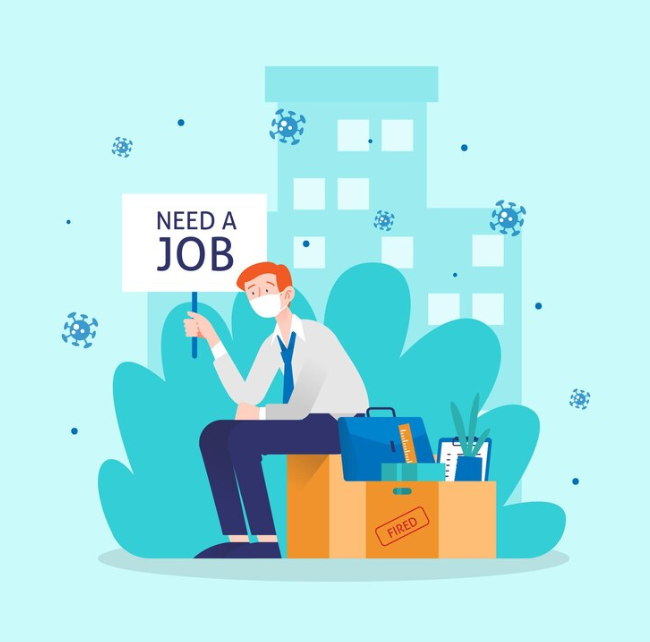Unemployment can be a challenging and often stressful experience, especially in today's dynamic job market. Whether it's due to company downsizing, a career change, or other circumstances, facing a period without employment is a reality many professionals encounter. However, this phase can also be an opportunity for growth, reflection, and strategic planning for your next career move. Here’s an in-depth look at how to navigate unemployment constructively and positively.
Understanding and Accepting the Situation
First and foremost, it's essential to acknowledge and accept your situation. Unemployment can evoke a range of emotions from frustration and anxiety to a sense of loss. It's okay to feel these emotions; they are a natural part of the process. The key is not to let them overwhelm you. Acknowledge them, and then focus on moving forward.
Creating a Structured Daily Routine
One of the challenges of unemployment is the loss of structure that a job provides. Creating a daily routine can help maintain a sense of normalcy and purpose. Dedicate specific hours for job searching, skill development, networking, and personal activities. A structured day can boost your productivity and mood.
Revamping Your Job Search Strategy
Use this time to reassess and revamp your job search strategy. Update your resume and LinkedIn profile, tailor your cover letters, and explore various job searching platforms. Diversify your approach by including networking, both online and in-person, and consider reaching out to recruiters who specialize in your field.
Skill Enhancement and Professional Development
Unemployment can be an excellent opportunity for professional development. Identify any gaps in your skills and consider enrolling in courses or workshops to enhance your employability. This not only makes you more marketable but also shows potential employers your commitment to continuous learning.
Networking and Building Connections
Networking is a powerful tool in your job search arsenal. Reach out to former colleagues, join professional associations, attend webinars, and participate in industry events. Building a robust professional network can open doors to opportunities that might not be advertised.
Financial Management During Unemployment
Financial stress can be a significant aspect of unemployment. It’s crucial to manage your finances wisely during this time. Create a budget that focuses on essential expenses, look for ways to reduce costs, and explore any unemployment benefits or assistance programs you may be eligible for.
Maintaining a Positive Mindset
Keeping a positive mindset is easier said than done, but it’s crucial. Practice self-care, engage in activities you enjoy, and stay connected with friends and family. Remember, unemployment is a temporary phase and not a reflection of your worth as a professional.
Exploring Temporary or Part-Time Work
Consider temporary or part-time work, freelancing, or consulting in your field. This can not only help financially but also keep your skills sharp. Additionally, it can provide networking opportunities and potentially lead to full-time employment.
Reflecting on Your Career Path
This period can also be a time for reflection. Think about your career path and whether you want to continue in the same direction or pivot to something new. Sometimes, unemployment can be the catalyst for a rewarding career change.
Staying Informed and Adaptable
Stay informed about trends in your industry and the job market. Being adaptable and open to new types of roles or industries can broaden your job search and increase your chances of finding employment.
Dealing with Rejection
Job rejections are an inevitable part of the job search process. It’s important not to take these personally. Use them as learning experiences to refine your approach. Seek feedback when possible and use it constructively.
Volunteering and Personal Projects
Engage in volunteering or personal projects. These can be fulfilling and also add value to your resume. They show potential employers your initiative and commitment to staying active and involved.
Seeking Support When Needed
Don’t hesitate to seek support if you find it hard to cope. This could be from career counselors, support groups, or even mental health professionals. Getting help is a sign of strength, not weakness.
Staying Active and Healthy
Physical activity and a healthy lifestyle are vital during this time. Regular exercise can boost your mood and energy levels, making you more effective in your job search.
Being Prepared for Interviews
Prepare thoroughly for interviews. Research the company, practice your answers, and plan questions to ask the interviewer. Each interview is a learning opportunity and a chance to improve.
Conclusion
Unemployment can be a period of uncertainty, but it's also a time ripe with possibilities for personal and professional growth. By staying proactive, maintaining a positive mindset, and using this time to enhance your skills and network, you can emerge from this phase stronger and more prepared for the next chapter in your career. Remember, every professional experiences setbacks; it’s how you respond to them that defines your career journey.





